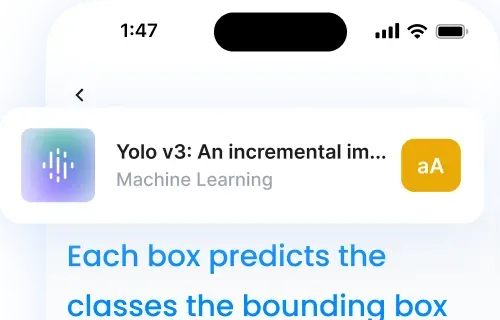Student loans are a crucial resource for many aspiring college students, but understanding the ins and outs of student loans, such as federal direct loans and the terms for student loan payment, is essential before committing to this financial responsibility.
This guide will help you navigate the complex world of student loans, covering everything from federal and private loan options to repayment strategies and things to know about student loans before you borrow.
Types of Student Loans: Federal Loans and Private Loans
When it comes to paying for college, there are two main types of student loans: federal student loans and private student loans. Understanding the differences between these options, such as subsidized and unsubsidized loans, is crucial for making informed decisions about how to finance your education.
Federal Student Loans
Federal student loans are offered by the U.S. Department of Education and come in several forms:
1. Direct Subsidized Loans: These loans are available to undergraduate students who demonstrate financial need. The government pays the interest on these loans while you’re in school and during certain deferment periods. 2. Direct Unsubsidized Loans: Available to both undergraduate and graduate students, regardless of financial need. Interest accrues on these loans from the time they’re disbursed. 3. Direct PLUS Loans: These are available to graduate students and parents of dependent undergraduate students. They require a credit check and have higher interest rates than other federal loans.
###
Federal student loans offer several advantages, including:
- Fixed interest rates
- Income-driven repayment plans can help manage your student loan payment.
- Potential for loan forgiveness
- No credit check required (except for PLUS loans)
Private Student Loans
[Private student loans are offered by banks](), credit unions, and other financial institutions. These loans typically:
- Require a credit check and often a cosigner
- May have variable or fixed interest rates
- Often have less flexible repayment options
- Don’t offer student loan forgiveness programs.
How Federal and Private Student Loans Work

Understanding how student loans work is crucial before taking on debt to pay for college. Here’s a breakdown of the process for managing federal direct loans and private loans:
1. Application: For federal loans, you need to fill out the Free Application for Federal Student Aid (FAFSA). For private loans, you apply directly with the lender. 2. Approval: Federal Direct loans are awarded based on financial need and cost of attendance. Private loans are approved based on creditworthiness by a private lender. 3. Disbursement: Loan funds are typically sent directly to your school to cover tuition and fees. Any remaining amount is provided to you for other educational expenses. 4. Interest Accrual: Unsubsidized loans begin accruing interest immediately. For subsidized loans, interest doesn’t accrue while you’re in school or during deferment periods. 5. Repayment: Most federal loans offer a six-month grace period after graduation before repayment begins, allowing you time to plan your student loan payment. Private loans may require payments while you’re still in school.
Things to Know Before You Borrow
Before taking out student loans, consider these important factors:
1. Borrow only what you need: Calculate your actual costs and borrow conservatively to minimize future debt, especially focusing on loans with a lower interest rate. 2. Understand the terms: Know your interest rate, repayment period, and when repayment begins. 3. Explore all options: Exhaust scholarships, grants, and work-study opportunities before turning to loans, as you need to borrow wisely. 4. Consider future earnings: Research potential salaries in your chosen field to ensure you can manage loan repayments. 5. Know your repayment options: Familiarize yourself with various repayment plans, especially for federal loans.
Student Loan Repayment: What You Need to Know
Repaying student loans is a long-term commitment. Here are some key points to understand about subsidized and unsubsidized loans:
1. Standard Repayment Plan: This is the default plan for federal loans, with fixed payments over 10 years. 2. Income-Driven Repayment Plans: These plans adjust your monthly payment based on your income and family size. 3. Loan Consolidation: You can combine multiple federal loans into one Direct Consolidation Loan for simplified repayment. 4. Deferment and Forbearance: These options allow you to temporarily pause or reduce payments during financial hardship. 5. Loan Forgiveness Programs: Some federal loans may be forgiven after a certain period of time or under specific circumstances, such as working in public service.

Using Student Loans Wisely
While student loans can be a valuable tool for accessing higher education, it’s crucial to use them responsibly. Here are some tips:
1. Create a budget: Track your expenses and look for ways to reduce costs while in school. 2. Make interest payments if possible: Even small payments on unsubsidized loans while in school can reduce your overall debt. 3. Understand your loan servicer: Know who manages your loans and how to contact them, whether they handle federal direct loans or private loans. 4. Keep good records: Maintain copies of all loan documents and correspondence, including those from your private lender if you have private loans. 5. Stay informed: Keep up with changes in student loan policies and repayment options.
Navigating the World of Student Loans
Student loans can be a powerful tool for accessing higher education and investing in your future, but be mindful of accumulating student loan debt. However, it’s crucial to understand the ins and outs of student loans before borrowing.
By carefully considering your options, borrowing responsibly, and planning repayment, you can use student loans effectively to achieve your educational goals without being overwhelmed by student loan debt.
Remember, the key to successfully managing student loans is to stay informed, plan ahead, and borrow only what you need to cover your college costs.









